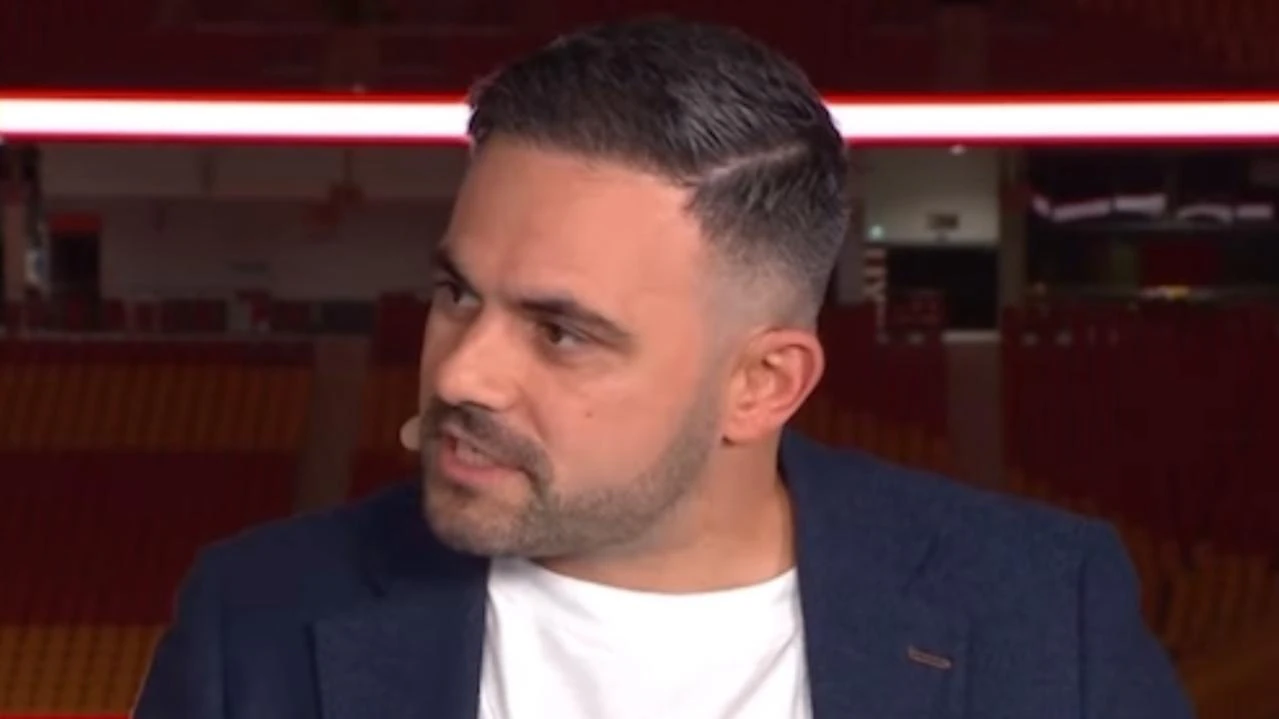Copyright GamesRadar+

Pluribus, the new Apple TV sci-fi show is many things: the new series from Breaking Bad creator Vince Gilligan, a long-overdue starring vehicle for Better Call Saul breakout Rhea Seehorn and, in classic Apple TV fashion, a barely publicized show that massively overdelivers on its secretive messaging. But what it isn't is a mystery show in the lineage of Twin Peaks, Lost or, latterly, Severance. In fact, I'd go so far as to say it's the anti-Severance. Spoilers ahead for episodes one and two of Pluribus. Okay, so the sensational pilot episode of Pluribus does open in mysterious fashion, to be fair. Researchers working at a satellite array in the desert discover a transmission from deep space, scientists are conducting important and unspecified experiments on rats… this is the stuff that has fuelled countless Reddit rabbit-holes. But Pluribus – to an almost stubborn extent – answers any questions almost as soon as they're posed. By the end of the first episode, not only do we know that all but 11 people across the globe have been bonded by a viral nucleotide (or 'psychic glue', in layman's terms) into a single hive mind. We also know, with relative certainty, that the pod people who now make up 99.9% of humanity mean romantasy writer Carol Sturka (Seehorn) and her immune brethren no harm. The only significant lingering question is why Carol and 10 other souls are unaffected by the nucleotide (something the Joined are equally puzzled by) and how the new status quo could be changed. But Pluribus doesn't establish these as foundational mysteries akin to the nature of the island in Lost, or Macrodata Refinement in Severance. These are problems that the characters are actively working through without any promise of a game-changing revelation, just a ticking clock until a potential breakthrough. The bigger picture As a showrunner, Gilligan has always had a habit of cramming a full season's worth of story into a single episode, and Pluribus is no different. A very different type of show would have teased out the Joining over weeks, and kept the motivation of the Joined a mystery. What do they want? Why are they here? The thinkpieces write themselves. But with sincere concern for Carol's wellbeing, the Joined – through besuited Undersecretary of Agriculture Davis Tafflin – explain everything. They are here. Carol is safe. And they are working out a way to bring Carol into their collective. They even seem quite nice. This continues into episode 2. Carol wants to meet the other (English-speaking) individuated people, so the Joined facilitate a face-to-face summit immediately. The conversation doesn't go how Carol expects – turns out the 'traitors to humanity' aren't interested in restoring the old world order. But that's beside the point. We're not kept in the dark, or left to wonder who these people are and what connects them. The information is presented without resistance or question. And so the show goes, across the 7 (of 9) episodes that were provided to press ahead of release. I won't touch on any details of future episodes here, but Pluribus is very much the show it tells you it is in its opening couple of hours. The information is always on the surface, the Joined a benevolent, altruistic community that has Carol's best interests at heart. Of course, there could be some dark secret lurking in those climactic, concealed-from-press final episodes, but that feels very unlikely. Pluribus is something different. What's in the box? There's a time and a place for mystery shows; I love Severance as much as the next Outie. But there's only so much theorising and forum-trawling my brain can handle. And in a TV landscape where we're expected to wait 3+ years between seasons for answers, mystery box TV has become an increasingly unappealing prospect. Pluribus, despite surface similarities to a show like Severance (both deal with high-concept ideas of the individual vs the collective), has completely different goals. Most importantly, obfuscating information simply isn't part of Pluribus' MO. Much like Carol has her every question truthfully answered by the Joined, Pluribus doesn't want to leave viewers out of the loop. It's much closer to something like a thought experiment, conceptualised as entertainment: if the world suddenly changed overnight for all but 11 people, what would happen? How could the limits of the theory be tested? Gilligan's own prediliction for painstaking procedure (episode 2's bravura opening depicting Zosia's epic voyage to Carol, for example) plays into this. It may turn out that I have completely the wrong read on Pluribus come season's end, but everything I've seen so far tells me that Pluribus is not the mystery box show it's being sold as. And after two-plus decades of mystery shows chasing Lost's tail or, more generously, building on the legacy of Twin Peaks, the fact that Pluribus is taking the trappings of a well-established genre to do something drastically original is one of this great show's greatest strengths.



